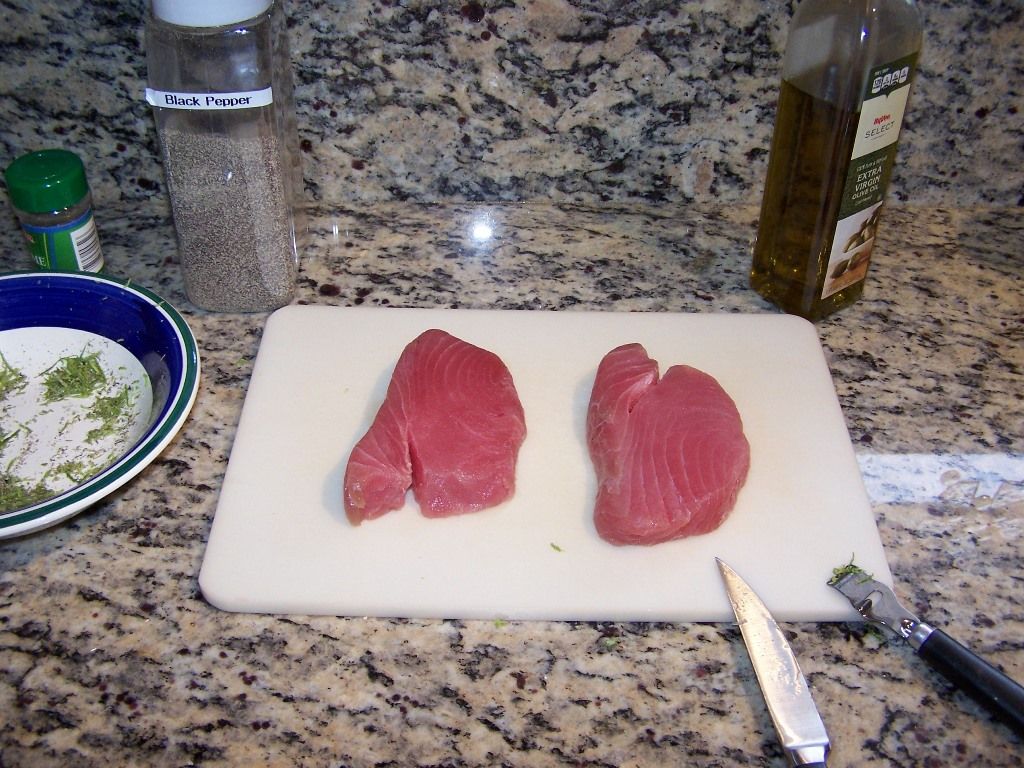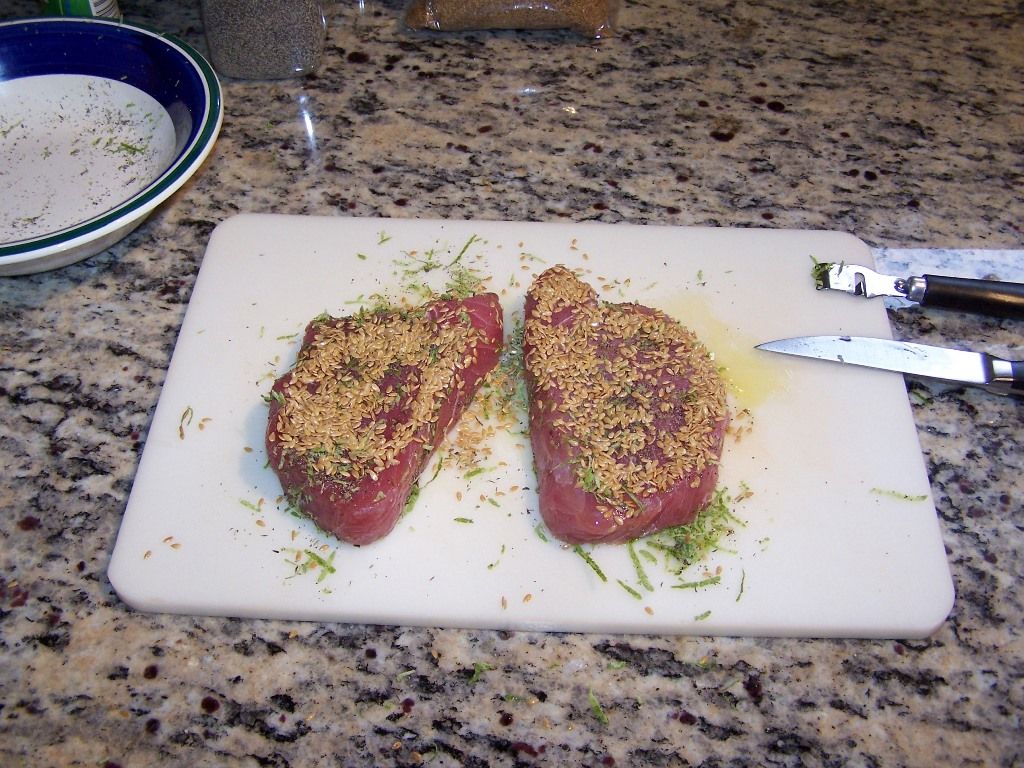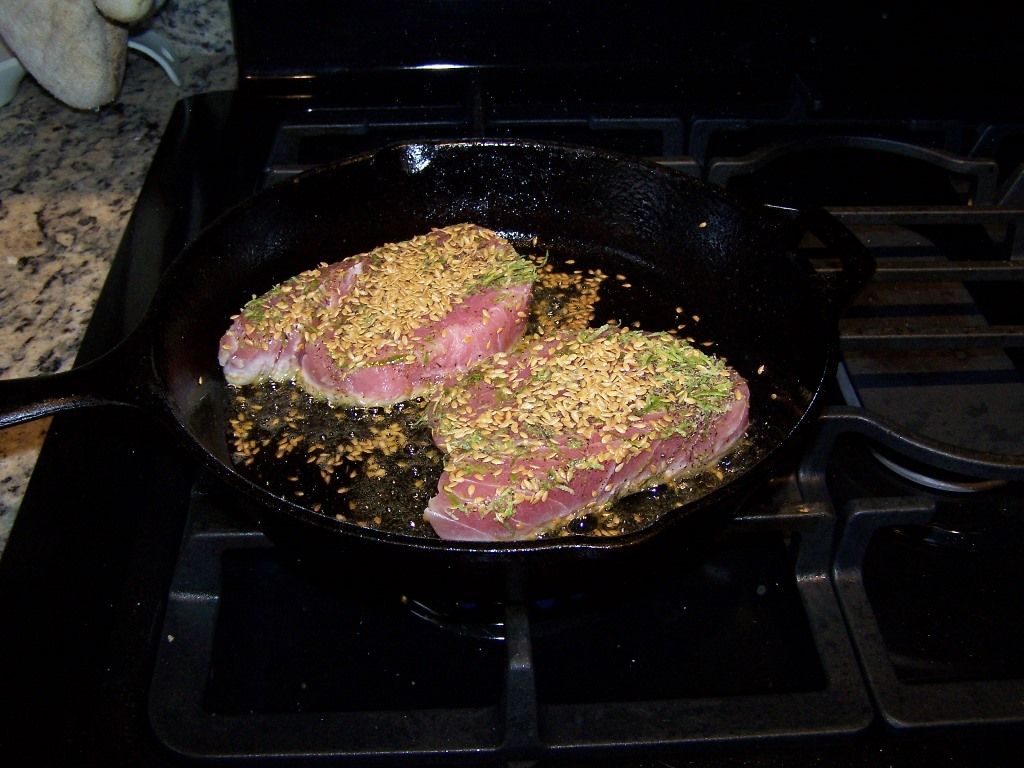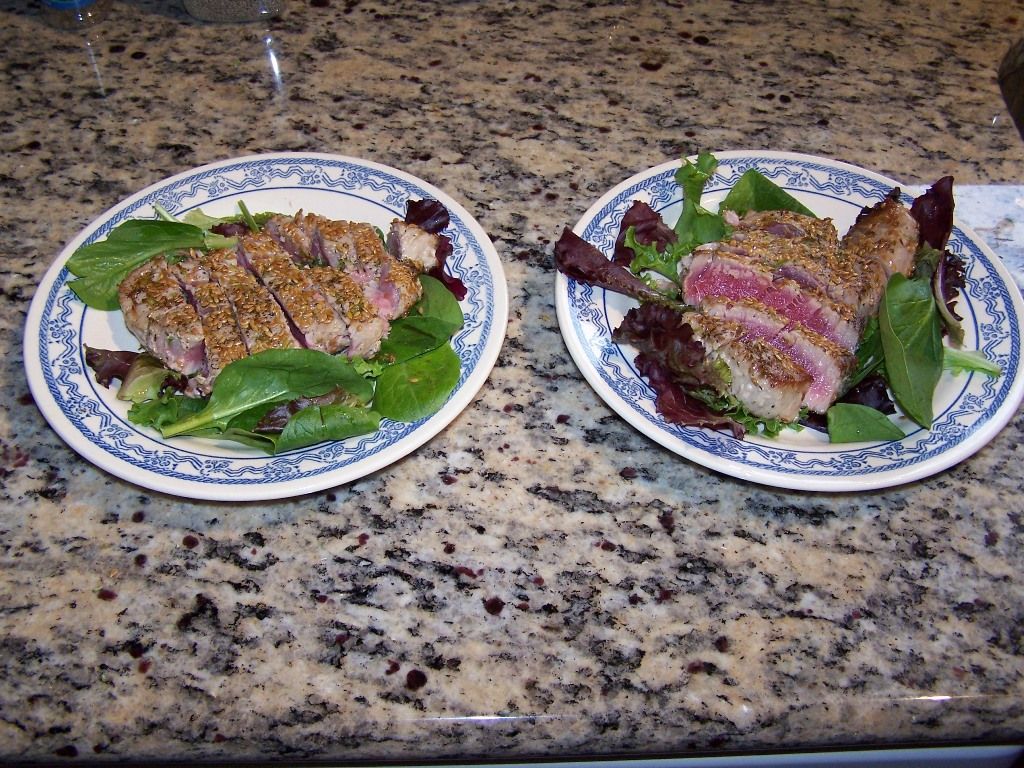It's been a few months since I've made tuna steaks, so while I was in town today I picked up a couple for dinner tonight.
Ready to be seasoned with some olive oil, lime zest, thyme, and pepper.

Seasoned, and some flax seed added to give it texture and a slightly nutty flavor. The lime zest, tuna and flax seed work well together.

All it takes is about 2 minutes on each side in a nice, hot cast iron pan with a touch of olive oil.

On a bed of salad greens drizzled with the juice from the lime that I used for the zest. The lime juice is all that I use on the salad greens.

It takes about 15 minutes start to finish, and it costs about $5/person. With the flax seed it's somewhere around 400 calories per plate. The flavors are bold enough to go well with a red blend wine, and I just happened to have a bottle in my cellar that was a perfect match.
I do love fish.
Ready to be seasoned with some olive oil, lime zest, thyme, and pepper.

Seasoned, and some flax seed added to give it texture and a slightly nutty flavor. The lime zest, tuna and flax seed work well together.

All it takes is about 2 minutes on each side in a nice, hot cast iron pan with a touch of olive oil.

On a bed of salad greens drizzled with the juice from the lime that I used for the zest. The lime juice is all that I use on the salad greens.

It takes about 15 minutes start to finish, and it costs about $5/person. With the flax seed it's somewhere around 400 calories per plate. The flavors are bold enough to go well with a red blend wine, and I just happened to have a bottle in my cellar that was a perfect match.
I do love fish.
